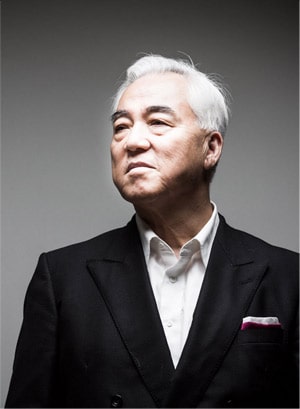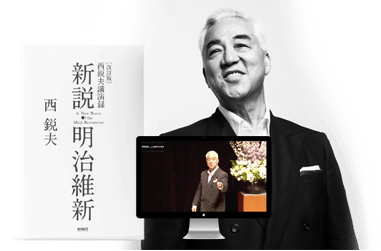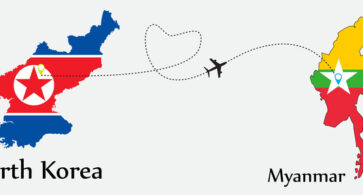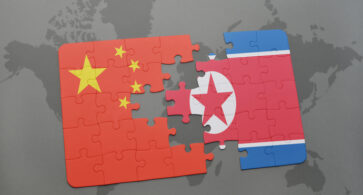【英文史料】
Consequence upon our acceptance of the Potsdam Declaration the ultimate form of Japanese government is to be determined by the freely expressed will of the Japanese people. I am fully aware of our nation's strong consciousness of justice, its aspirations to live a peaceful life and promote cultural enlightenment, and its firm resolve to renounce war and to foster friendship with all the countries of the world. It is, therefore, my desire that the Constitution of our empire be revised drastically upon the basis of respect for the fundamental human rights. I command hereby the competent authorities of my government to put forth in conformity with my wish their best efforts toward the accomplishment of this end.
6 March 1946
【日本政府訳】
朕曩ニポツダム宣言ヲ受諾セルニ伴ヒ日本国政治ノ最終ノ形態ハ日本国民ノ自由ニ表明シタル意思ニ依リ決定セラルベキモノナルニ顧ミ日本国民ガ正義ノ自覚ニ依リテ平和ノ生活ヲ享有シ文化ノ向上ヲ希求シ進ンデ戦争ヲ抛棄シテ誼ヲ万邦ニ修ムルノ決意ナルヲ念ヒ乃チ国民ノ総意ヲ基調トシ人格ノ基本的権利ヲ尊重スルノ主義ニ則リ憲法ニ根本的ノ改正ヲ加ヘ以テ国家再建ノ礎ヲ定メムコトヲ庶幾フ政府当局其レ克ク朕ノ意ヲ体シ必ズ此ノ目的ヲ達成セムコトヲ期セヨ
【英文史料】
3RD DRAFT
2 Mar 1946
General MacArthur's announcement of a new Constitution for Japan
It is with a sense of deep satisfaction that I am to-day able to announce a decision of the Emperor and Government of Japan to submit to the Japanese people a new and enlightened constitution which has my full approval. This instrument has been drafted after painstaking investigation and frequent conference between members of the Japanese Government and this headquarters following my initial direction to the cabinet five months ago.
Declared by its terms to be the supreme law for Japan, it places sovereignty squarely in the hands of the people. It establishes governmental authority with the predominant power vested in an elected legislature, as representative of the people, but with adequate check upon that power, as well as upon the power of the Executive and the Judiciary, to insure that no branch of government may become autocratic or arbitrary in the administration of affairs of state. It leaves the throne without governmental authority or state property, subject to the people's will, a symbol of the people's unity. It provides for and guarantees to the people fundamental human liberties which satisfy the most exacting standards of enlightened thought. It severs for all time the shackles of feudalism and in its place raises the dignity of man under protection of the people's sovereignty. It is throughout responsive to the most advanced concept of human relations - is an eclectic instrument, realistically blending the several divergent political philosophies which intellectually honest men advocate.
Foremost of its provisions is that which, abolishing war as a sovereign right of the nation, forever renounces the threat or use of force as a means for settling disputes with any other nation and forbids in future the authorization of any army, navy, air force or other war potential or assumption of rights of belligerency by the state. By this undertaking and commitment Japan surrenders rights inherent in her own sovereignty and renders her future security and very survival subject to the good faith and justice of the peace loving peoples of the world. By it does a nation, recognizing the futility of war as an arbiter of international issues, chart a new course oriented to faith in the justice, tolerance and understanding of mankind.
The Japanese people thus turn their backs firmly upon the mysticism and unreality of the past and face instead a future of realism with a new faith and a new hope.
この記事の著者

西 鋭夫
1941年大阪生まれ。関西学院大学文学部卒業後、ワシントン大学大学院に学ぶ。
同大学院で修士号と博士号取得(国際政治・教育学博士) J・ウォルター・トンプソン広告代理店に勤務後1977年よりスタンフォード大学フーヴァー研究所博士号取得研究員。それより現在まで、スタンフォード大学フーヴァー研究所教授。
西 鋭夫

1941年大阪生まれ。関西学院大学文学部卒業後、ワシントン大学大学院に学ぶ。
同大学院で修士号と博士号取得(国際政治・教育学博士) J・ウォルター・トンプソン広告代理店に勤務後1977年よりスタンフォード大学フーヴァー研究所博士号取得研究員。それより現在まで、スタンフォード大学フーヴァー研究所教授。











